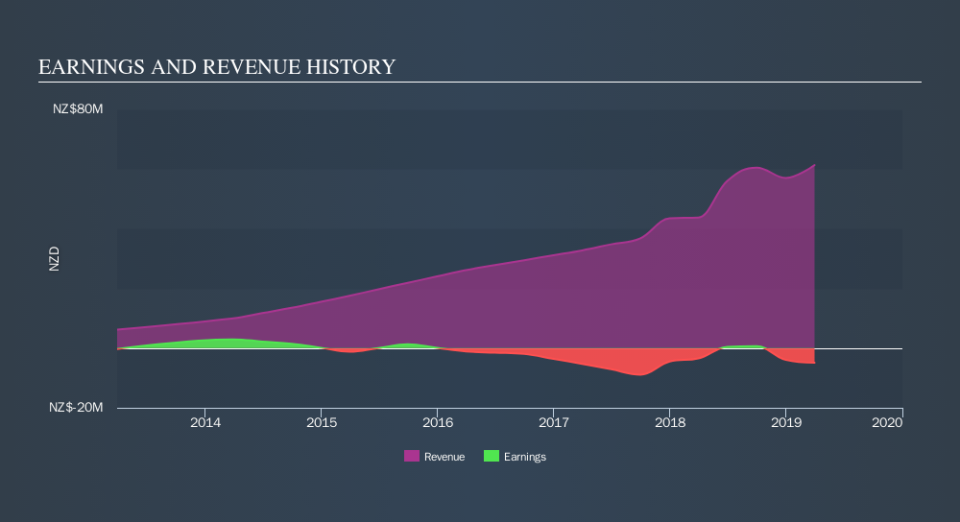Does EROAD Limited (NZSE:ERD) Have A Volatile Share Price?

If you own shares in EROAD Limited (NZSE:ERD) then it's worth thinking about how it contributes to the volatility of your portfolio, overall. In finance, Beta is a measure of volatility. Volatility is considered to be a measure of risk in modern finance theory. Investors may think of volatility as falling into two main categories. The first category is company specific volatility. This can be dealt with by limiting your exposure to any particular stock. The second type is the broader market volatility, which you cannot diversify away, since it arises from macroeconomic factors which directly affects all the stocks on the market.
Some stocks mimic the volatility of the market quite closely, while others demonstrate muted, exagerrated or uncorrelated price movements. Beta can be a useful tool to understand how much a stock is influenced by market risk (volatility). However, Warren Buffett said 'volatility is far from synonymous with risk' in his 2014 letter to investors. So, while useful, beta is not the only metric to consider. To use beta as an investor, you must first understand that the overall market has a beta of one. A stock with a beta below one is either less volatile than the market, or more volatile but not corellated with the overall market. In comparison a stock with a beta of over one tends to be move in a similar direction to the market in the long term, but with greater changes in price.
View our latest analysis for EROAD
What does ERD's beta value mean to investors?
Zooming in on EROAD, we see it has a five year beta of 0.90. This is below 1, so historically its share price has been rather independent from the market. This means that -- if history is a guide -- buying the stock would reduce the impact of overall market volatility in many portfolios (depending on the beta of the portfolio, of course). Many would argue that beta is useful in position sizing, but fundamental metrics such as revenue and earnings are more important overall. You can see EROAD's revenue and earnings in the image below.
How does ERD's size impact its beta?
With a market capitalisation of NZ$214m, EROAD is a very small company by global standards. It is quite likely to be unknown to most investors. It is not unusual for very small companies to have a low beta value, especially if only low volumes of shares are traded. Even when they are traded more actively, the share price is often more susceptible to company specific developments than overall market volatility.
What this means for you:
The EROAD doesn't usually show much sensitivity to the broader market. This could be for a variety of reasons. Typically, smaller companies have a low beta if their share price tends to move a lot due to company specific developments. Alternatively, an strong dividend payer might move less than the market because investors are valuing it for its income stream. This article aims to educate investors about beta values, but it's well worth looking at important company-specific fundamentals such as EROAD’s financial health and performance track record. I urge you to continue your research by taking a look at the following:
Future Outlook: What are well-informed industry analysts predicting for ERD’s future growth? Take a look at our free research report of analyst consensus for ERD’s outlook.
Past Track Record: Has ERD been consistently performing well irrespective of the ups and downs in the market? Go into more detail in the past performance analysis and take a look at the free visual representations of ERD's historicals for more clarity.
Other Interesting Stocks: It's worth checking to see how ERD measures up against other companies on valuation. You could start with this free list of prospective options.
We aim to bring you long-term focused research analysis driven by fundamental data. Note that our analysis may not factor in the latest price-sensitive company announcements or qualitative material.
If you spot an error that warrants correction, please contact the editor at editorial-team@simplywallst.com. This article by Simply Wall St is general in nature. It does not constitute a recommendation to buy or sell any stock, and does not take account of your objectives, or your financial situation. Simply Wall St has no position in the stocks mentioned. Thank you for reading.


